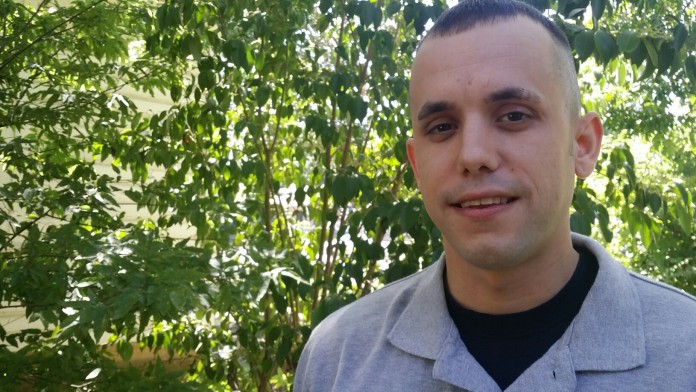By Stephen Nunnelee, Videographer
I’ve heard all the typical stereotypes about Baylor, everything from “just a bunch of rich kids” to “poor kids at Baylor can’t have any fun.” I have to tell the truth: Before coming to Baylor, I had my own reservations about what I was getting myself into.
Gratefully, all my fears and negative assumptions about this school were quickly dissolved. I was immediately showered with positivity and support from complete strangers, and I truly can say I would not be graduating this May without the wonderful staff and students of Baylor.
But what if this is not the case for every student who attends Baylor? What if the students that need accommodations the most find that Baylor is coming up short?
This question never occurred to me until recently when I shot a video package for the Lariat. Tony Zhang, a freshman with cerebral palsy, was surprised with an electric power chair purchased with donations from a GoFundMe page, which was set up by two students who felt compelled to help.
Tony was having problems accomplishing the basic task of getting to class. He had to plan his entire day and class schedule around the fact that it would take up to 45 minutes just to get class. If it was raining outside, forget making it to class.
When the Lariat sat down to interview Tony, he expressed his gratitude to the students and community for coming together and helping him with his situation. Then he said something that I found interesting, almost disheartening.
He said he had contacted administration upon arriving at Baylor and realized he needed help, yet received none whatsoever. In fact, all involved in the situation — Tony, the two students who set up the fund and even a parent of one of the students who set up the fund — contacted Baylor administration about Tony’s problem. All were either given the runaround or, to use their words, “hit a brick wall.”
In 1990, the U.S. government passed the Americans with Disabilities Act, which requires colleges and private institutions to remove any barriers impeding the student — whether these are architectural, communication related or, in Tony’s case, transportation. This act also seeks to provide reasonable modifications to the rules, policies or practices if necessary.
Now, that seems like an up-front and simple policy until you read the fine print. The act applies to every public and private institution except those affiliated with religious organizations.
By no means am I insinuating Baylor is using this as some type of loophole to not help students with disabilities. I know firsthand how much compassion Baylor has for its students, but why could Tony not find the help he needed? Why, when contacted, did administrators not have an answer or some type of program that could assist Tony?
Before leaving Tony, I asked him the same question I ask everybody in interviews. I asked if there was anything else he would like to add. Tony paused to gather his thoughts, then spent the next few minutes explaining that he knows he is not the only person on campus with disabilities struggling to get to class, and hopes Baylor realizes there will be more to come.
He’s right. If an athlete is injured, accommodations are made to get them to class, and rightfully so. What about Tony?
Baylor needs some type of program to assist students with disabilities with getting to class. Every student in college has enough stress, and whether or not they can make it to class should not be one of them.
Stephen Nunnelee is a senior journalism major from Tyler. He is the videographer for the Lariat.






